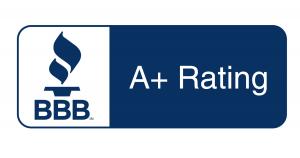Aggravated Assault Lawyers in Pittsburgh

The crime of aggravated assault — also referred to as felony assault — involves causing serious injury without regard for an individual’s life. Committing assault against certain public employees and officials also is considered aggravated assault in Pennsylvania.
If you’re charged with aggravated assault, it’s important to understand how the law defines the crime, what penalties you might incur and how you can defend yourself.
What Is Considered Aggravated Assault in Pittsburgh?
In Pennsylvania, simple assault involves recklessly, knowingly or intentionally attempting to cause physical harm to someone. For a conviction of aggravated assault, the law adds to that definition that the physical injury is serious and that the defendant exhibited an “extreme indifference” to an individual’s life in committing the crime. Intentionally causing or attempting to cause injury to someone by using a deadly weapon also qualifies as aggravated assault.
In addition, aggravated assault includes any effort to knowingly or recklessly cause physical harm to a child younger than 13.
The law defines “acting recklessly” as consciously ignoring the serious consequences that actions may have. Courts typically rule that a defendant acted recklessly if a reasonable individual would have understood the risks of committing the same behavior under the same circumstances.
To meet the requirement of “serious bodily injury,” a prosecutor must show that the victim suffered permanent and serious disfigurement, impairment or loss, or that the victim endured a significant risk of dying because of the defendant’s actions.
Aggravated Assault Against Public Employees
Knowingly, recklessly or intentionally causing or attempting to cause injury to certain agents, employees or officers of the government also is defined as aggravated assault in Pennsylvania. Officers and employees who can be considered targets of aggravated assault under the law include:
- Law enforcement officers and firefighters.
- Emergency medical personnel.
- Parole and probation officers.
- Alcohol control agents.
- Correctional institution employees.
- Judges and district attorneys.
- The attorney general and deputy attorney general.
- Public defenders.
- Psychiatric aides.
- Any employee, including student employees, of any public school.
- The governor and lieutenant governor.
- The state auditor and treasurer.
- Members of the state General Assembly.
- Public utilities employees.
- Wildlife conservation officers.
In addition, aggravated assault includes an effort through “physical menace” to make any of the protected employees afraid of imminent physical injury as they perform their duties.
A defendant who uses tear gas, “noxious gas” or an electrical device intended for incapacitation against any protected government agent who is acting within the scope of their job also may be guilty of aggravated assault.
Penalties for Aggravated Assault in Pittsburgh, PA
If you are charged with a count of aggravated assault that did not include serious physical injury to an individual, you may be convicted of a second-degree felony. The penalty can include a fine of as much as $25,000 and up to 10 years in prison.
A charge of aggravated assault that caused serious injury may be a first-degree felony, with penalties including a fine of as much as $25,000 and up to 20 years in prison.
Whether aggravated assault constitutes a first- or second-degree felony under Pennsylvania law depends on who the victim of the crime was. For example, an aggravated assault against a firefighter or law enforcement officer qualifies as a first-degree felony.
Pennsylvania typically categorizes simple assault as a second-degree misdemeanor. An exception is a fight in which both participants consented to the activity, which may be charged as a third-degree misdemeanor.
Defense Against an Aggravated Assault Charge
A qualified criminal defense attorney can assist you in mounting the most effective defense possible against a charge of aggravated assault. After an extensive investigation of the circumstances surrounding the alleged crime, your attorney may use any of the following defenses to convince a judge or jury to acquit you or impose a lesser sentence:
- You did not intend to harm the victim.
- You were defending yourself at the time that you physically harmed the victim.
- You did not realize you were causing physical injury to the victim.
- The alleged victim did not suffer any bodily injury.
- The alleged victim provoked you into acting.
- You were mentally unstable or insane at the time of the alleged assault.
- You were involuntarily intoxicated at the time of the assault.
Seek Assistance From a Qualified Criminal Defense Attorney
Aggravated assault is a serious charge that can result in significant prison time and a large fine. If you’ve been charged with aggravated assault, it is in your interests to work with experienced criminal defense lawyers who can make a convincing case on your behalf to secure the most favorable outcome possible for you. For a consultation, please contact DeLuca, Ricciuti & Konieczka.









